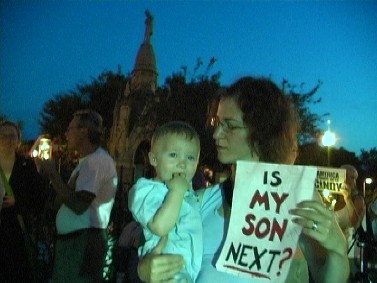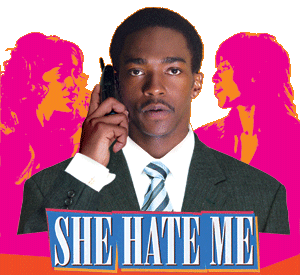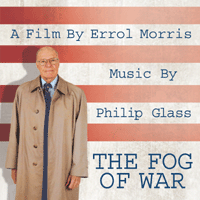The Lie That Killed My Son: The Lila Lipscomb Interview
Two years ago, if you had asked Lila Lipscomb what she stood for, she would have referred you to the flag in her garden and her four grown-up children. Her priorities were, in descending order of importance, family, faith, country and a place where all three met, what she might have called "service": two of her children were in the military and she worked in the public sector, at an employment agency designed to get people off welfare. She is, as she puts it, "an extremely strong woman. And I've raised my daughters to understand that they come from a long line of strong, independent women. So the men in our lives have to be very unique. Hence Pops."
Pops is her husband, Howard, a car-factory worker. He has accompanied Lipscomb to London today by way of moral support and sits across from her in the hotel suite, eyes brimming. What she is saying is not easy for either of them. Lipscomb describes an event that changed their lives and forced a seismic shift in their political perceptions; a shift that she hopes millions of her fellow Americans will be making between now and election time in November. To her surprise, and the surprise of all who know her, Lipscomb is becoming a figurehead in the fight to oust George Bush.
It is two weeks since Fahrenheit 9/11, Michael Moore's polemic on the war in Iraq, was released in America, and in that time Lipscomb's voice has emerged as the film's most powerful. As with any project generated by Moore, the film will be loved and loathed in equal measure, but whatever one thinks of him, it is hard to resist the testimony of 50-year-old Lipscomb, a mother from Flint, Michigan, who still flies a flag in her garden, but is down to three children and a handful of ruptured assumptions where other certainties used to be.
The scenes in which she recounts the story of her son Michael's death have had cinema-goers sniffing into their sleeves. "For many years," says Lipscomb, "I thought I had to control everything. I had a real controlling spirit. But, boy, when the army stands in your house and tells you that your oldest son is killed, all that flies out the window. Over this last year and a half, I've been known to cry a bit."
By Emma Brockes
The Guardian U.K.

 Song for Cindy Sheehan Video
Song for Cindy Sheehan Video




































 Madeleine BAROUKHEL-MOUREAU
Madeleine BAROUKHEL-MOUREAU 




























0 Comments:
Post a Comment
<< Home